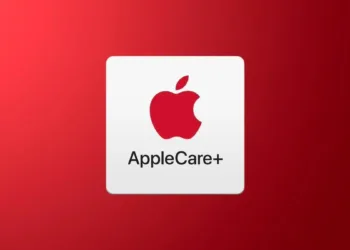The latest episode of Resident Playbook has set K-drama forums ablaze with its morally complex portrayal of resident doctors Oh Yi-young and Min Eun-won’s escalating conflict. Episode 9 delivers a masterclass in character development as Yi-young makes decisions that blur the line between professional ambition and ethical compromise, leaving viewers questioning who truly wears the villain’s mantle. The tension crescendos during a breathtaking operating room confrontation where years of suppressed resentment bubble to the surface with life-or-death consequences.
Director Park Ji-hoon employs claustrophobic close-ups and jarring surgical light transitions to mirror the characters’ psychological unraveling. What begins as a typical medical drama power struggle transforms into a profound examination of how the high-pressure hospital environment distorts even the most principled individuals. As fans passionately debate whether Yi-young crossed an unforgivable line or simply adapted to survive the cutthroat medical hierarchy, one thing becomes clear – Resident Playbook has elevated itself beyond medical drama tropes into Shakespearean territory.
Table of Contents
The Pivotal Confrontation Scene
The episode’s emotional core unfolds during an emergency cesarean section where Yi-young deliberately withholds critical information from Eun-won, resulting in a near-fatal complication for both mother and child. Cinematographer Lee Min-woo’s decision to shoot the sequence in unbroken takes amplifies the visceral tension, with the steady beep of the heart monitor serving as an ominous metronome. Viewers witness Yi-young’s internal conflict play across actress Jung So-min’s face – microexpressions of guilt flashing beneath her surgical mask before hardening into cold determination.

The scene’s brilliance lies in its ambiguity; while Yi-young’s actions appear malicious, context reveals she’s implementing an unconventional technique learned from her controversial mentor Dr. Kang. When Eun-won (played with razor-sharp intensity by Park Gyu-young) discovers the deception, her reaction shot – a mixture of betrayal and reluctant admiration – suggests this rivalry transcends simple hero/villain dynamics. The medical dialogue cleverly doubles as psychological warfare, with terms like “controlled hypotension” and “selective disclosure” becoming metaphors for their professional relationship.
Oh Yi-young’s Moral Descent
Tracing Yi-young’s journey from idealistic intern to morally ambiguous resident reveals the show’s nuanced commentary on institutional corruption. Flashbacks to her early days – bright-eyed and reciting the Hippocratic Oath with conviction – contrast painfully with current scenes where she rationalizes unethical decisions as “playing the long game.” Episode 9 reveals her turning point: the death of Patient Kim in Episode 5, where strict adherence to protocol led to tragedy. Now, Yi-young operates by a new mantra – “better to ask forgiveness than permission” – that puts her on a collision course with by-the-book Eun-won.
What makes her character particularly compelling is how the writing avoids easy judgment; her controversial methods consistently produce excellent patient outcomes, forcing viewers to question whether ends can justify means. The episode’s most chilling moment comes not in the OR but in the call room, where Yi-young calmly alters a patient chart while humming – a subtle touch that suggests how routine ethical compromises have become for her.

Min Eun-won’s Psychological Warfare
While Yi-young’s actions dominate Episode 9’s discourse, Eun-won’s response reveals her own capacity for manipulation. Rather than reporting Yi-young immediately, she engineers situations to expose her rival’s methods publicly, using patients as unwitting pawns. Their power struggle reaches new heights during rounds, where Eun-won’s seemingly innocent questions (“Dr. Oh, how did you learn this technique?”) are carefully crafted traps.
Park Gyu-young delivers a masterful performance, letting subtle cracks in Eun-won’s perfect resident facade show – a trembling hand when alone, compulsive chart-checking, and increasingly erratic decisions that mirror Yi-young’s own descent. The episode’s final scene, where Eun-won destroys rather than submits a misconduct report, confirms she’s no innocent victim but an active participant in their toxic dynamic. This moral mirroring raises profound questions about whether the hospital system inevitably corrupts even the most principled doctors or if some individuals simply use the system as an excuse for their own ambition.
Fan Reactions & Ethical Debates
The K-drama community has fractured into passionate camps following Episode 9’s airing, with #WhoIsTheRealVillain trending for 48 hours. Medical professionals have weighed in on Reddit threads, debating whether Yi-young’s controversial “Kang Method” has real-world precedent. Some fans defend her as a revolutionary fighting a broken system, citing her 92% success rate compared to Eun-won’s 88%. Others argue no statistics justify endangering patients without consent.
Intriguingly, many viewers report their allegiances shifting throughout the episode – a testament to the writing’s complexity. Drama critics praise how the show uses medical cases as ethical Rorschach tests; the cesarean complication scene particularly resonates in post-Roe discourse about maternal healthcare. Even the actors have joined the debate, with Jung So-min telling Variety she plays Yi-young as “someone who believes she’s the hero of her own story,” while Park Gyu-young describes Eun-won as “a perfectionist whose greatest weakness is her inability to admit imperfection.”
BLACKPINK Lisa Dominates Coachella 2025: Music, Performance, and Acting Breakthrough
FAQs
Q: Where can I watch Resident Playbook Episode 9 with English subtitles?
A: The episode is available on Viki and Kocowa, with professional subtitles typically updated within 12 hours of the Korean broadcast.
Q: Is Oh Yi-young’s “Kang Method” based on real medical techniques?
A: While the show takes creative liberties, medical consultants confirm it draws inspiration from real debates about paternalism vs. patient autonomy in surgical practice.








